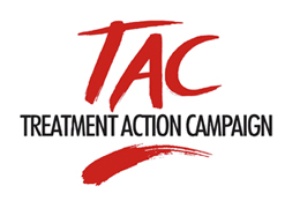Appeal to global donors to save the Treatment Action Campaign
... in HIV, we have witnessed something unique—global social justice in response to one disease. We believe the lessons of HIV need to be expanded upon. A similar alliance of activism and scientific inquiry is needed for tuberculosis ...
, on behalf of 67 signatories listed in the appendix
Fulfilling the right to health depends on common purpose between researchers, clinicians, and activists. On the eve of World AIDS Day 2014 (Dec 1), we write this letter as scientists and academics who are concerned about the possible closure of the Treatment Action Campaign (TAC) in South Africa as a consequence of serious funding difficulties.
As much as fulfilment of the right to health requires investment in new scientific breakthroughs and sound research discoveries, it also requires investment and support of strong, independent, organised, and relevant civil society movements.
Civil society, particularly people with HIV, have had a pivotal role throughout the response to HIV/AIDS. In the 1980s, it was activists' demands for treatment that increased funding for HIV research and created a sense of urgency in the medical community. In the 1990s and 2000s, the loud global voice of activists helped to create political commitment for a response to HIV, which, in turn, released funds for research into many of the scientific breakthroughs that have occurred since. Activists have also ensured that new findings, such as those for treatment and prevention, have been rapidly turned into delivery of care and services, and they have maintained oversight of the health systems needed to deliver this.
As a result, in HIV, we have witnessed something unique—global social justice in response to one disease. We believe the lessons of HIV need to be expanded upon. A similar alliance of activism and scientific inquiry is needed for tuberculosis, Ebola, malaria, cancer, chronic diseases, mental health, and other health challenges.
Many activist organisations have contributed to the response to HIV but undoubtedly one of the most effective health and human rights movements has been the TAC in South Africa. Through its campaigns for antiretroviral treatment, TAC helped to change the response to the HIV epidemic in southern Africa (the epicentre of the global epidemic) from one that was mired in political denialism to one that wins praise for South Africa from all over the world. TAC also has been playing a crucial role in treatment literacy, educating communities about HIV, the treatment they have been given, and the importance of adherence. Consequently, 2·5 million people now take antiretroviral therapy in South Africa. However, this is no cause for complacency or for the dismantling and demobilisation of civil society. New challenges have replaced old ones; new science requires new activism and vice versa. Sustaining and expanding intervention to all 6 million people with HIV in South Africa requires TAC to expand its activism on tuberculosis, on exercising oversight over the quality of public health services, on ensuring accountability, and on a continued sense of urgency.
This is why we are alarmed to hear that TAC is facing closure, apparently due to the perception from many donors and governments that either the end of AIDS is nearing or that South Africa is a middle-income country that is not in need of donor support. Nothing could be further from the truth.
Allowing the TAC (and similar organisations in other countries) to die from lack of funding will have very grave consequences. Without activist monitoring, the AIDS response in South Africa could go into reverse. Precious gains could be lost. Poor adherence, loss to follow-up, and medicine stock-outs could go unreported. If this happens, then there will be little to celebrate by the time the 21st International AIDS Conference returns to Durban in 2016—the city in which TAC first organised a global march for access to treatment.
In 2014, let us mark 10 years of anti-retroviral treatment in South Africa as a moment when we were reinvigorated and as a moment when we give civil society the support they need and deserve. We close our appeal by remembering the words used by Nelson Mandela 10 years ago: “The more we lack the courage and the will to act, the more we condemn to death our brothers and sisters, our children and our grandchildren. When the history of our times is written, will we be remembered as the generation that turned our backs in a moment of a global crisis or will it be recorded that we did the right thing?”.
We declare no competing interests.
Supplementary appendix (signatories)
a London School of Hygiene & Tropical Medicine, London WC1E 7HT, UK
b Institut Pasteur, Paris, France
c Centre for the AIDS Programme of Research in South Africa (CAPRISA), Durban, South Africa
d Johns Hopkins University, Baltimore, MD, USA
Source: The Lancet


